Counting skills Normal Matching Worksheets for Ages 4-5
6 filtered results
-
From - To
Enhance your child's counting abilities with our engaging Normal Matching Worksheets designed for ages 4-5! These worksheets are perfect for early learners, offering a fun and interactive way to practice counting skills through matching activities. Children will connect numbers with corresponding quantities, fostering recognition and comprehension in a playful setting. Each worksheet is thoughtfully crafted to promote cognitive development, encouraging children to explore mathematical concepts with ease. Ideal for home or classroom use, our resources support young learners in building a solid foundation in mathematics. Dive into our collection and spark a love for learning through counting today!
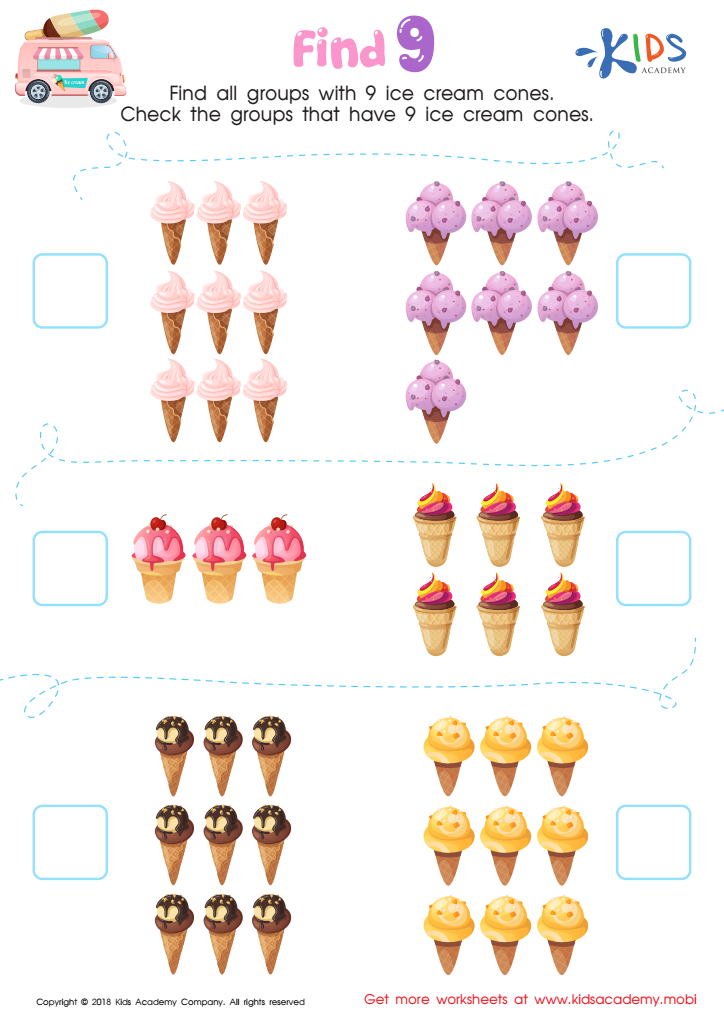

Find 9 Worksheet
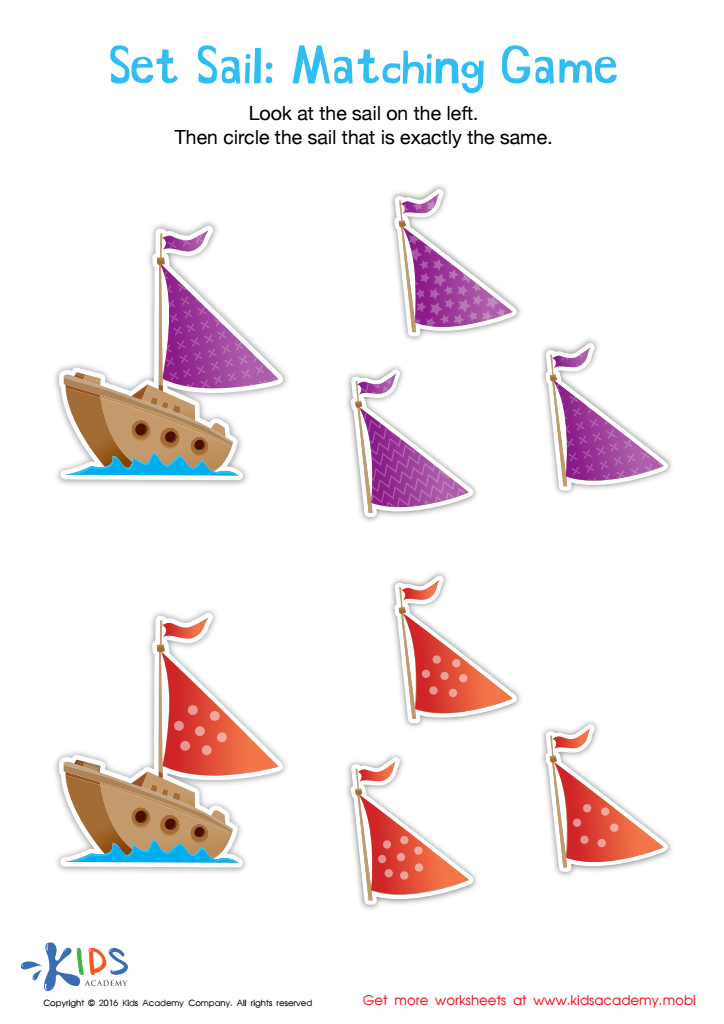

Set Sail Worksheet
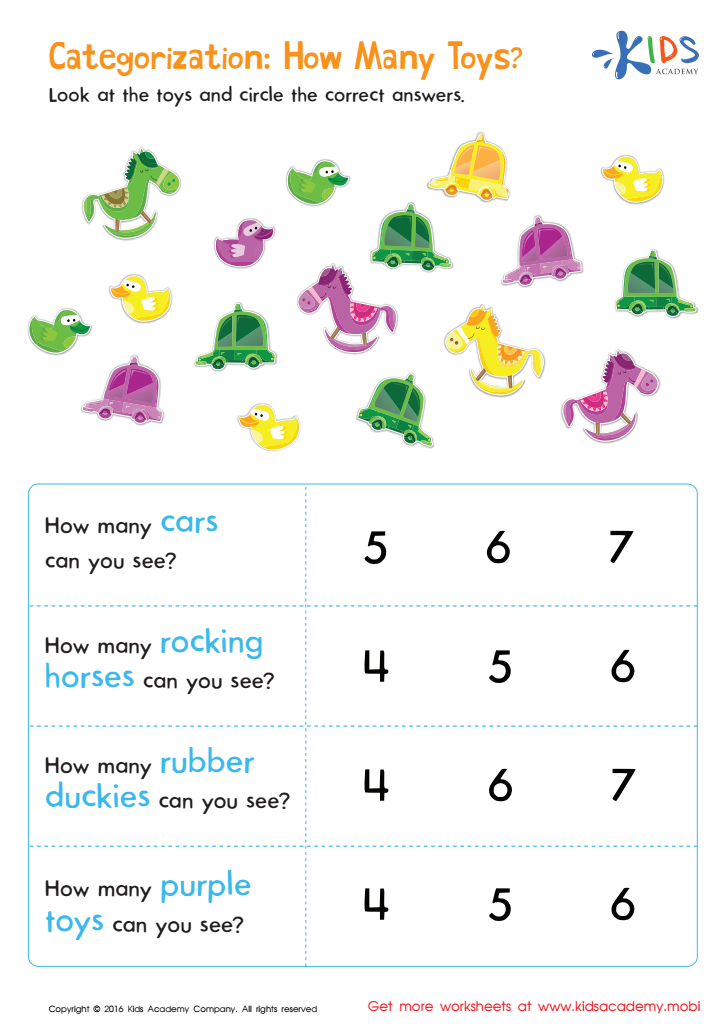

Classifying Toys by Type and Color Sorting Worksheet


Frog Countdown Worksheet
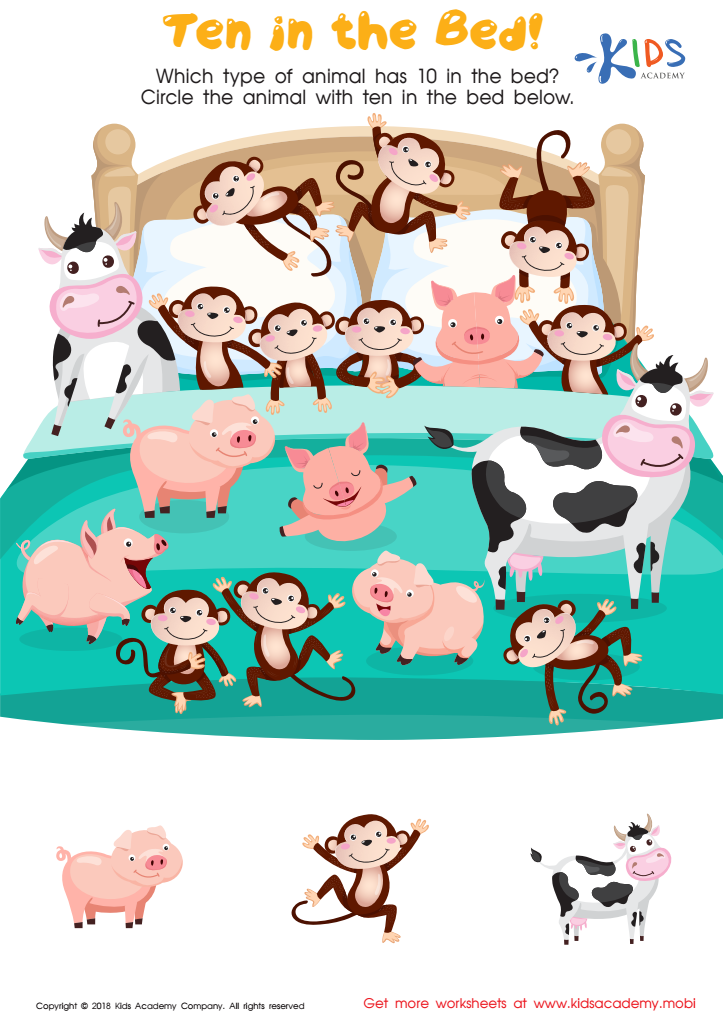

Ten in the Bed Worksheet
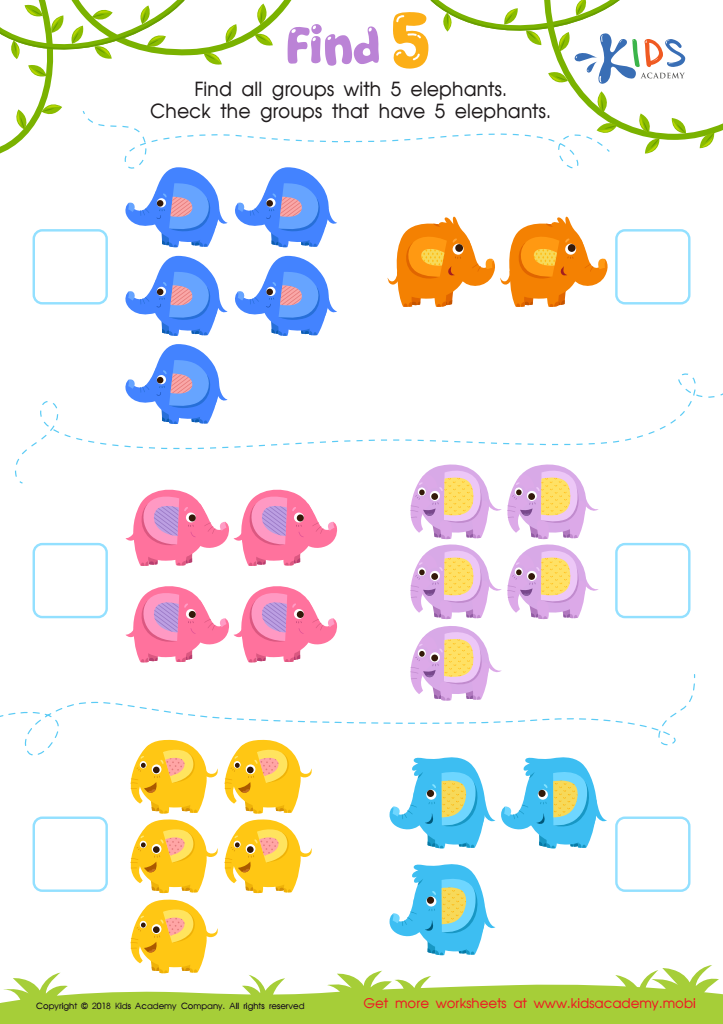

Find 5 Worksheet
Counting skills and normal matching for children aged 4-5 are foundational components of early childhood education that profoundly impact their cognitive development and later academic success. At this stage, children are beginning to understand number concepts, quantity, and basic mathematical principles. This is crucial as these skills form the building blocks for more complex arithmetic later on.
Parents and teachers should care about these skills because they encourage critical thinking and problem-solving abilities. When children engage in counting and matching activities, they enhance their ability to recognize patterns, categorize objects, and make comparisons. These activities also promote fine motor skills and hand-eye coordination as children manipulate objects to count or match them appropriately.
Moreover, mastering counting and matching boosts a child's confidence and motivates them to engage further in learning. It fosters a sense of accomplishment, leading to a positive attitude towards mathematics as they progress in their education. By supporting children in these early learning experiences, parents and teachers can lay a strong foundation that not only prepares them for future academic challenges but also enriches their everyday experiences, helping them to develop valuable life skills along the way.
 Assign to My Students
Assign to My Students





















